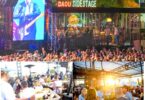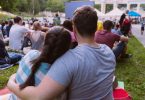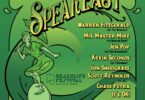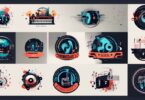Artistic expression has been an intricate part of every civilization from the beginning of time. They were a way of expressing the ways of the world, the lives of individuals, times of war, and times of love. Even today people are filled with emotions and the best way they can express themselves is through some kind of art. It’s unique to the individual and to the emotion. Performing at Carnegie Hall for the second time on December 10, 2011, Diandian Wu knows the importance of the arts. As a student of them, he moves forward with his knowledge to show the world that two different cultures can blend together to express their emotions through music.
Diandian began playing the piano at the age of six. Practicing to classical western music, the arts have always been a major part of his life. “I wanted to learn the piano because my father is a professional ballet dancer and I was born into an artistic family,” said Diandian. “There are many musicians who played the piano, violin and other western instruments around me. Piano was my favorite and my piano teacher is a famous pianist in The National Ballet of China and that’s what helped me choose it.”
Most of us do not even know one thing about traditional Chinese music. For Diandian, western classical music was the beginning – the building blocks to a bigger understanding of the knowledge he wanted. “Western classical music is the basic task for every piano beginner,” explained Diandian. “When I was very young, I didn’t have many opportunities to be exposed to traditional Chinese music.”
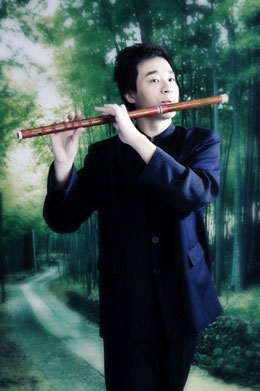
In 2009, Diandain moved from his home in Beijing, China to the U.S. to gain a Masters of Art degree in Chinese literature and Art at Columbia University. “Besides music, I also like Chinese literature,” explained Diandian. “Chinese cultural background, especially knowledge of literature, is essential for performers to understand the connotation of Chinese music and to improve in playing it.” Besides being an accomplished performer, Diandian has also published many academic articles and in 2008 he released his first record, Dancing with Literature and Music: Diandian Wu’s Accomplishments Album of Chinese Literature and Music.
On December 10, 2011, Diandian Wu will once again grace Carnegie Hall with the dedication of presenting a solo concert of blending East and West. “The first part of the concert will consist of a piano performance, during which I will play pieces by Chopin, Beethoven, and Mozart, but I will also be playing well-known western movie scores,” said Diandian. “During the second part of the concert, I will perform traditional and modern Chinese music on Chinese instruments.” Besides the piano, Diandian is also trained in some traditional Chinese instruments such as the erhu (Chinese violin), the jinghu (the main instrument in the Beijing Opera), the banhu, the gaohu, the guqin (seven-stringed zither) and the bamboo flute.
“My goal is to popularize the beauty of Chinese music and art,” said Diandian, “and not to make it so academic, but enjoyable for people.”
For more information on Diandian Wu, please contact him at [email protected].


